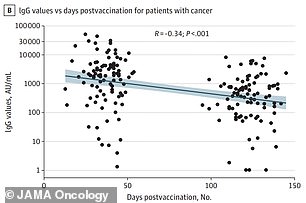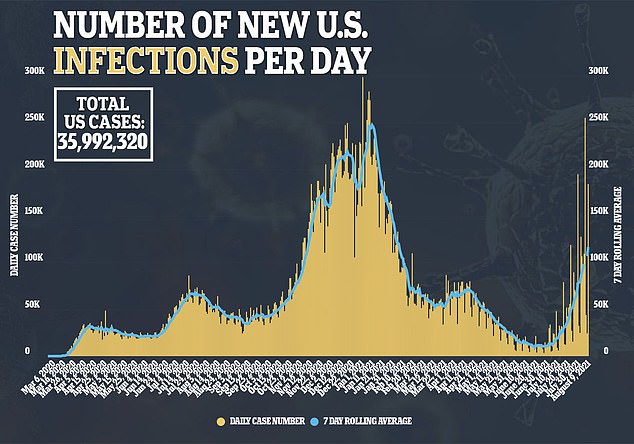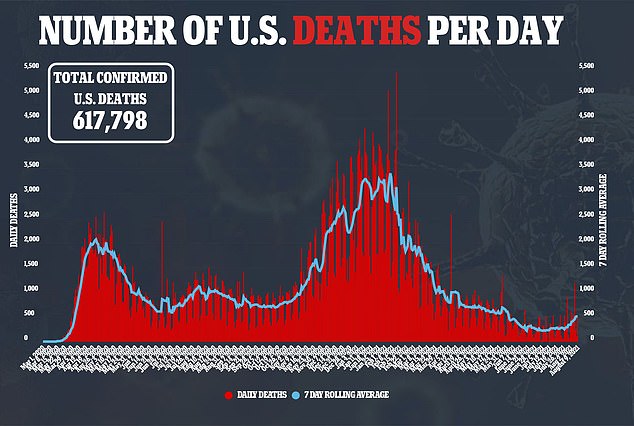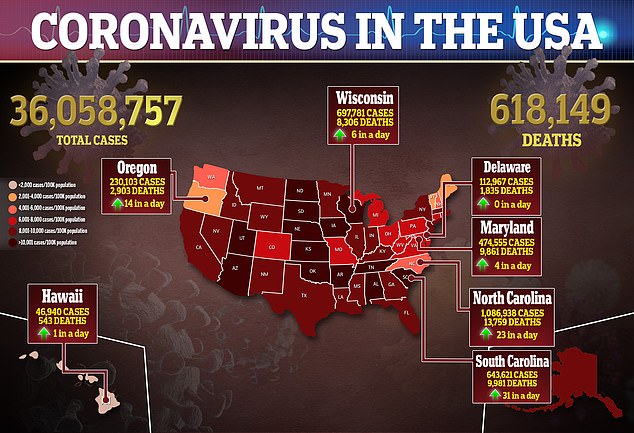Cancer patients are likely to develop high antibody levels within four months of receiving the second shot of a COVID-19 vaccine, a new study finds.
Researchers from Israel compared a group of cancer patients to a group of controls without the disease.
The team found that 87 percent of cancer patients were still generating high antibody levels four months later.
The team, from Rabin Medical Center in Petah Tikva, Israel, says the findings are promising because it shows that people who have weakened immune system due to cancer may actually not be at risk of developing a breakthrough Covid case.


Cancer patients (left) who developed high antibody responses immediately after two doses often remained at a high level. All members of the control group (right) remained at high levels after 5.5 weeks and after four months.
For the study, published in JAMA Oncology, the team gathered 95 participants with cancer and 66 others controls.
All of the participants were a part of a previous study, in which researchers measured antibody levels 5.5 weeks after receival of the second dose of the Pfizer-BioNTech vaccine.
At the time of the first study, all 78 members of the control group had high antibody levels, and 90 out of 102 cancer patients had appropriate antibody levels.
However, cancer patients still had lower levels than the others on average.
In between the two studies, five cancer patients died and two withdrew from the study. Among the control group, 12 participants withdrew.
All of the remaining participants were tested for antibodies once again around four months after receiving the second dose to see if they had maintained appropriate antibody levels.
Everyone in the control group still had high antibody levels.
Of the cancer patients, 83 of the 95, or 87 percent, had antibody levels that were considered protective against Covid.
Just as in the previous study, the cancer patients with high antibody levels still had lower levels than the control group.
The findings do support the idea that the vaccines are effective in all people long-term, though, and in cancer patients.
While there has not yet been a proven scientific link between higher COVID-19 antibody levels and more immunity, many scientists – including the Israeli research team – believe that is the case.


‘Although the correlation between antibody levels after vaccination and clinical protection is yet to be proven, the accumulating evidence supports antibody response as a potential correlate of disease protection,’ researchers wrote.
‘Long-term cellular memory could call into question the need for a third [Pfizer] booster dose.’
Previous studies have found that cancer patients, and those with blood-based cancers, are among those who develop lower antibody levels and could be at risk of developing breakthrough COVID-19 cases.
But the research does show that those who do develop high antibody levels after two doses are likely to stay at a high level.
It also suggests that those with low antibody levels, ten percent of participants with cancer, are also likely to stay that low.
Researchers write that booster doses could be the answer for helping those who are not developing antibody responses at a high level.
Booster doses could be coming soon, with both Pfizer and Moderna having launched trials for their third shots within the past few months.
The booster doses could be available to high-risk populations, such as the elderly and immunocompromised, as early as fall 2021.

Source link : https://www.dailymail.co.uk/health/article-9883911/Nearly-90-cancer-patients-high-antibody-levels-4-months-getting-second-vaccine-dose.html











